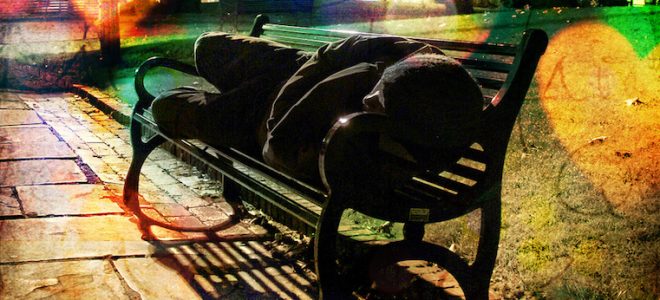
Annie is back home with her family after years of living on the streets dealing with homelessness.
A series of causes and effects lead to homelessness. It’s a “jacket” that evolves. The aim here is to teach something about homelessness from a bird’s eye view; hopefully, to impart a feel for it. The delivery is through a pros and cons list. The lists are hopefully illustrative.
These are not to imply that one wakes up and “decides” to be homeless. No, these are observations made after the fact. Finally, there are thoughts on crawling out of homelessness.
PROS: free rent, free shelter or extreme urban camping, free clothes, free stamps, free envelopes, free phones, free hygiene items such as shampoo and conditioner, free shower, free bus passes, free food (a meal every 6 hours in Boise), free time — lots of free time, very little responsibility, some attitude of being carefree—; contact with amazing helpers, volunteers, professionals and committed staff who are there to help in big (housing) and small (breakfast) ways; (check out Corpus Christi House, the Catholic Worker day shelter) an immersion into a diverse group from all walks of life. Being homeless is not torture.
CONS: No place to rest your “stuff” — forever carrying, at the least from 7 a.m. till 6 p.m. (laundry day is the worst — ouch); a desire to hide your homelessness (shame); dormitory living where the individual is lost. The shelter home to the group – untreated mentally ill, substance abusers, the young and the older are all in close quarters; everyone gets the same food, rules apply to the group, bathrooms and showers are shared, germs are shared (the dorm sounds like a TB ward at times). There is no privacy and instead life is public (sit on a park bench to file your nails). Like it or not we know where every public bathroom is in Boise (not enough), nor are there enough drinking fountains;
New articles will appear throughout the week. too much physical wear and tear from walking the streets in lousy free shoes; too much exposure to the elements (we are obsessed with the daily weather report); too much wasted free time (heartbreaking); and a sense of being invisible, of being dismissed, that grows over time (traumatic).
It’s a huge feat to get out. The lifestyle works against your success. Living in a sort of primitive way, meeting a landlord or showing up for a job interview is daunting. Utilizing generic social services requires an advanced degree, preferably in Social Work (hah!).
Fulltime work at minimum wage is not sufficient for rent. And, there is no reason for a landlord to choose you with dismal credit over someone with good credit and no legal dings. Try looking for an apartment by bus and by foot — without a car! The challenges can only be touched on in the scope of this essay, but in sum this process is not a “pull yourself up by the bootstraps” situation.
I like to think I have held on to some grace as a 60-year-old disabled homeless woman. Some days people would not identify me as homeless. Some days I am definitely trudging the streets feeling and looking very forlorn.
Have you made eye contact with a homeless person today?